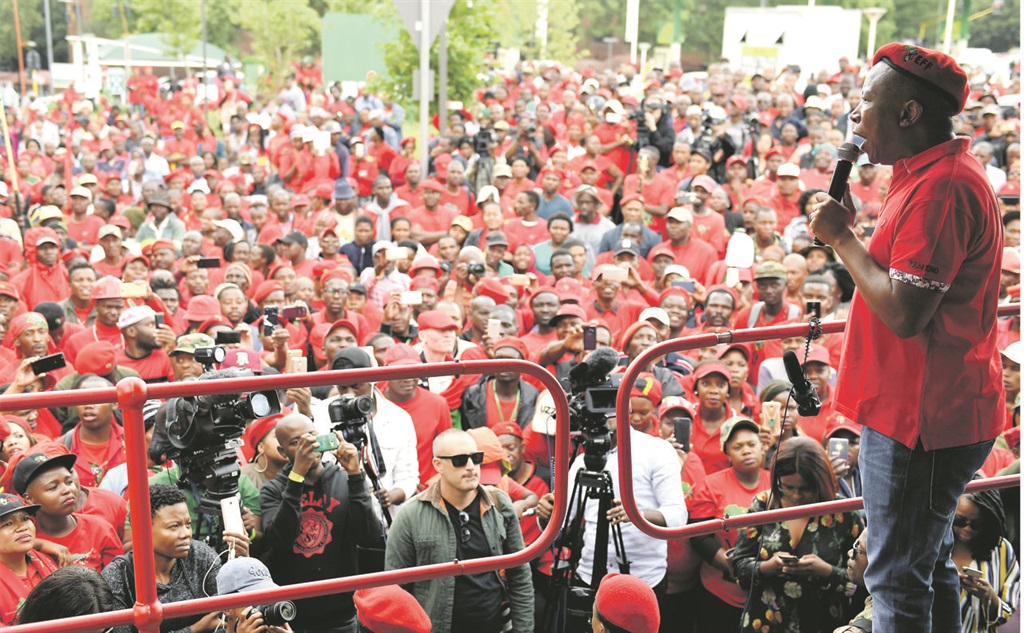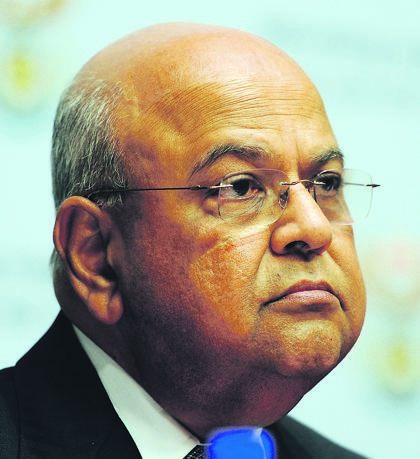
As journalists, it is our duty to be unbiased and nonpartisan. However, there are those among us who can barely conceal their bias, writes Rapule Tabane
Long before veteran journalist Jacques Pauw got himself caught up in an embarrassing tangle last week after tweeting Economic Freedom Fighters (EFF) leader Julius Malema’s home address, it was evident that a number of journalists had lost their way when it came to the EFF.
What started as the media defending itself against an onslaught on the industry by the EFF, continued when many journalists took off their veils of neutrality and took up cudgels against the party.
Pauw’s reckless behaviour has since been condemned by the SA National Editors’ Forum and many other journalists, and he was forced to delete the tweet.
But Pauw was merely joining a current popular media narrative that has declared the EFF a danger to democracy and suggests that the party and its members are free game.
There is much to dislike about the EFF – its leadership has recklessly and foolishly attacked journalists at its press conferences and events, and it also endangered the lives of journalists by naming them in front of their supporters.
There is also a basis for questioning the party and figuring out whether it is ready to govern the country as it proclaims it is.
I know that Malema and his deputy Floyd Shivambu can be a handful and dangerous.
I was part of a group of political reporters who, in 2010, directly confronted them when they as the ANC Youth League then threatened to reveal information about the private lives of political reporters, especially of those who were women.
Not only did we write a public petition to the ANC Youth League and the ANC, but we met with then ANC secretary-general Gwede Mantashe, who successfully reined them in.
The difference between what is happening now and what happened then is that, back then, we challenged them on a specific issue, but did not harbour personal grudges, even if some of the journalists were traumatised by the bullying.
Every political party deserves hard scrutiny. The ANC has been subjected to this for most of the 24 years it has been in power.
At times it was so tough that the ANC even equated any criticism of the party to a judgement of black people.
It even went to the extent of deciding to establish a media tribunal to fight off the “negative coverage”.
As for the DA, after years of keeping its fights internal, tensions are exploding in public and the media is capturing this as it unfolds.
What makes the tug of war in the DA worse is that the issues often assume a racial dimension – something that embarrasses the party and which it naively tries to pretend does not exist.
However, none of the coverage has become personalised with the media using Mmusi Maimane’s family as fodder.
Malema and Shivambu appear imbued with a special talent to get under the skin of journalists.
They know exactly how to get our blood pressure up, but I say we should be bigger people than them.
Last week, I saw respected former journalist Max du Preez also calling for a special dispensation on how to treat the EFF.
He suggested we not broadcast the party’s press conferences live – they should be quarantined until they have been checked for defamatory content and insults. He felt the party was getting too much undeserved mileage.
The mantra these days is that the EFF is “being given too much oxygen for a 6% party”.
This, by the way, is exactly what some US media agonise over regarding US President Donald Trump.
Trump has a generally hostile relationship with the media and they are constantly fretting over his bombastic tweets or statements. The Washington Post, for example, has a fact-check barometer that assesses the veracity of all of Trump’s words.
Although veteran journalist Carl Bernstein has suggested that broadcasters be circumspect about carrying Trump’s blatant and deliberate lies, the icon’s suggestions have not found any favour in the US media.
My view is that, as journalists, we have allowed ourselves to be baited into a battle with the EFF.
Malema loves a good fight and we are giving him one on a silver platter. He does not mind fighting with all and sundry. He does not care.
But journalists have been sucked in to a war with Malema and his Twitter supporters.
This has gone to levels where some journalists actively troll Malema and the EFF on Twitter in an effort to ridicule, mock and embarrass the party and its members.
One journalist in particular has a propensity to correct their tweets and say: “EFF, this is how you should be phrasing your tweet.”
It is that petty. It’s gone way beyond us writing stories about the party and following up with opinion pieces if we choose. That space has been blurred.
Many in our society have also been offended by Malema’s attacks on Public Enterprises Minister Pravin Gordhan, who is regarded as key to President Cyril Ramaphosa’s battle against corruption.
Any attack on Gordhan has therefore come to be seen as an attempt to weaken the attempts to put South Africa back on its feet.
The racial attack on Gordhan for being of Indian descent has also angered a lot of South Africans who embrace nonracialism.
All of this explains the justified anger with the EFF, but, in my opinion, does not excuse the media losing its cool.
In South Africa, journalists, on paper, insist on objectivity, but our view of the world has become a binary one with a clear categorisation of what we see as the good guys and bad guys.
Ramaphosa and Gordhan have become, for a number of journalists, the epitome of the good guys, while the EFF currently represents everything evil.
Even when the party is not in the news, journalists often dig for something to show them up on Twitter. It is us versus them and their army of Twitter supporters.
The disproportionate focus on what some feel is a 6% party not deserving of this attention is proportionately marked by a deference and lack of interest for those who govern this country.
For example, I feel that, while Ramaphosa needs all the goodwill he can find while trying to fix the country, he is no less deserving of tough scrutiny – after all, he is the most powerful politician in the country.
Following the Bosasa debacle, Ramaphosa is not being asked to explain why money from the ANC presidential race is still being housed somewhere, even after he pledged to pay the donation to his campaign back.
Has the ANC accepted money as part of the leadership contest? What do other ANC members and leaders feel about it? Why is he keeping the money from Nasrec?
Who is keeping the money on his behalf? What do our laws say about such stashing of funds?
But, no! He is trying to clean up the country, so leave him alone.
The double standard is stark. On the VBS Mutual Bank scandal, R2 billion might have disappeared, but who cares? Our eyes are on the R16 million that the EFF might have received.
The ANC has admitted it received money from VBS, but, no, it is not the looter of VBS.
On the day that Gordhan’s affidavit was leaked, we saw a headline that read: “Gordhan’s affidavit shows he has nothing to hide.”
Which other affidavit is judged by this standard? Whose affidavit shows that they have something to hide? Is there anyone else whose affidavit showed that they had nothing to hide?
Who decided that he had nothing to hide? If Gordhan himself had said he had nothing to hide, the headline should have read: “Gordhan says he has nothing to hide.”
There are so many examples of journalists barely concealing their political preferences, even when they write news stories.
Gordhan was a bulwark against state capture, but he is a politician like all the others. We do our readers (and South Africa) a disservice if we elevate him above others and use special standards to assess him.
This article is not about the EFF or Gordhan, but they are the best examples of how we currently fail at our craft as we are blinded by our own prejudices.
We are not helping our case, and that worries me. We need to hear those voices that threaten what we think the country should be building.
Hearing them is not promoting them – it is actually our job to write and broadcast about those we dislike or those whose motives we question. We are not doing them a favour.
What is more disturbing for me is the herd mentality that prevails in how we write and broadcast.
When one outlet reports that Party A is behaving in a certain way as a device to detract attention from their own problems, we all reproduce that as if it is a fact.
As journalists, we must ask ourselves what it is that we fear about certain parties more than others.
The fact that we love and care about the future of this country should not stop us from doing the basics in journalism.
 |
| ||||||||||||||
| |||||||||||||||




 Publications
Publications
 Partners
Partners










